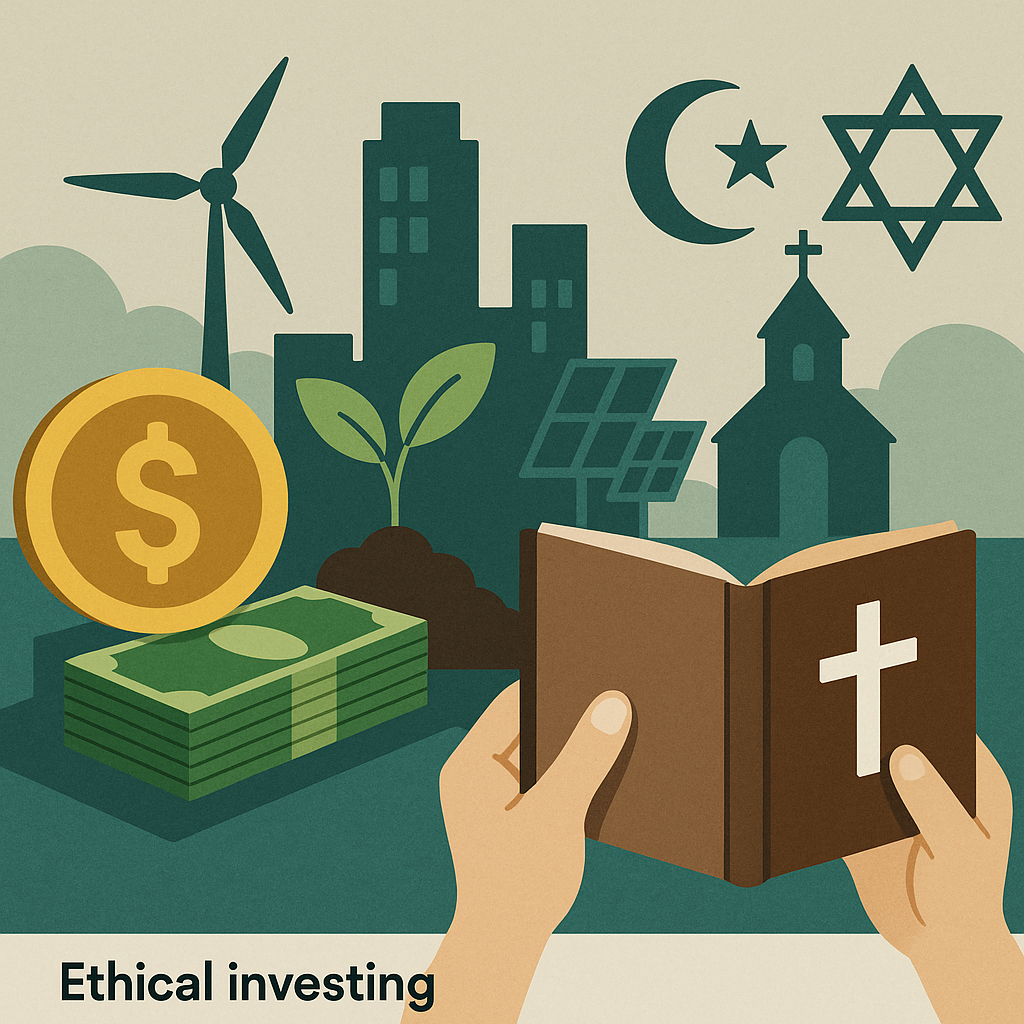The Rise of Faith-Based Finance: Ethical Investing, Green Bonds & Religion
In recent years, finance and faith — two worlds once seen as opposites — have begun to converge in powerful ways. The growing demand for ethical, sustainable, and value-driven financial systems has given rise to what experts call faith-based finance. From Islamic banking to Christian ethical funds, from Hindu-inspired business ethics to Buddhist social enterprises, religious principles are increasingly shaping how money moves, invests, and impacts society. The emergence of green bonds and ethical investments shows that faith and finance can indeed work together for a more just and sustainable world.
Faith and Money: A Long-Standing Connection
Faith-based finance is not new. For centuries, religion has guided humanity’s moral relationship with wealth. In Christianity, the Bible warns against greed and exploitation, encouraging charity and stewardship. Islam prohibits interest (riba) and promotes risk-sharing and social justice through Zakat (obligatory charity). Hinduism views wealth (Lakshmi) as sacred when earned ethically and used for dharma (righteous purposes). Buddhism teaches moderation, compassion, and the right livelihood — discouraging profit from harm or deceit.
While traditional religious teachings emphasized moral conduct, the modern financial world long ignored these principles in pursuit of profit. However, as global crises — climate change, inequality, and corruption — intensify, there’s a renewed push to reintroduce ethics into economics. Investors, consumers, and institutions are now looking to faith-inspired frameworks to guide their financial choices.
The New Wave: Faith-Based Investing
Faith-based investing, also called values-driven investing, allows individuals and organizations to align their financial portfolios with their moral and spiritual beliefs. The core idea is simple — money should not only grow but also do good.
Christian investors, for example, often choose “socially responsible” funds that avoid industries like tobacco, arms, or gambling. Islamic investors follow Sharia-compliant models that ban interest-based lending, speculative trading, and investment in harmful businesses. Jewish finance emphasizes tzedakah (charitable giving) and fairness in contracts. Similarly, Hindu and Buddhist-inspired funds focus on environmental sustainability, non-violence, and community well-being.
Global investment firms have noticed this shift. Major financial institutions now offer “faith-based” or “ethical” portfolios that screen companies according to moral criteria. These funds prioritize transparency, equity, and sustainability — ensuring that profit is not achieved at the cost of people or the planet.
Islamic Finance: A Global Model of Ethical Banking
Among faith-based financial systems, Islamic finance has emerged as one of the most structured and widely adopted models. Valued at over $3 trillion globally, it operates on principles of fairness, partnership, and risk-sharing. Instead of charging interest, banks earn profit through trade, leasing, or joint ventures.
Islamic finance also prohibits investments in industries that contradict moral values — such as alcohol, gambling, or weapons. This system not only promotes ethical economics but also fosters financial inclusion by offering interest-free products that appeal even to non-Muslim investors seeking transparency and stability.
Countries like Malaysia, the UAE, and the UK have established strong Islamic banking sectors, while global banks like HSBC and Citi have launched Sharia-compliant divisions. The success of Islamic finance has inspired other faith traditions to explore similar ethical frameworks tailored to their values.
Green Bonds and the Moral Turn in Finance
A remarkable offshoot of faith-based finance is the rise of green bonds — financial instruments that fund environmentally sustainable projects. These bonds finance renewable energy, clean water, sustainable agriculture, and eco-friendly infrastructure.
Religious organizations, recognizing their moral responsibility to protect the planet, have become major supporters of green finance. The Vatican has endorsed climate action as a moral duty, Buddhist monasteries invest in renewable energy projects, and Hindu temples are installing solar panels as a form of seva (service). Islamic green bonds, known as Sukuk al-Khadra, are gaining popularity in the Middle East and Southeast Asia, blending environmental stewardship with Sharia principles.
This movement reflects a broader truth: ethical finance is no longer niche — it is becoming mainstream. Investors increasingly understand that aligning money with moral values not only benefits society but also reduces long-term risks.
Faith-Based Finance and Social Justice
Beyond environmental goals, faith-based finance seeks to address social inequality. Microfinance programs inspired by religious teachings empower marginalized communities through interest-free loans and cooperative savings. Sikh seva initiatives, Christian credit unions, and Muslim charitable foundations are examples of how finance can serve human dignity rather than dominate it.
In India, faith-inspired social enterprises are bridging the gap between profit and purpose — combining traditional spiritual ethics with modern business innovation. These initiatives fund education, healthcare, and women’s empowerment, showing how ancient values can shape inclusive economic growth.
Faith-based finance thus acts as a counterbalance to the profit-at-all-costs mindset that dominates global capitalism. It brings back the idea that money is a tool for service — not self-centered accumulation.
Challenges and the Way Forward
Despite its promise, faith-based finance faces challenges. Different religions have varied definitions of “ethical,” and integrating them into global markets requires legal and cultural adaptation. Moreover, there’s the risk of “greenwashing” — when companies pretend to be ethical without genuine impact.
To overcome this, experts call for stronger interfaith collaboration and standardized ethical frameworks. Technology, too, is helping — blockchain tools now allow investors to track where their money goes, ensuring transparency and accountability.
The future of finance may well depend on how deeply it reconnects with moral wisdom. Faith-based finance is not about returning to the past; it’s about reimagining the future — where business, belief, and benevolence coexist.
When Morality Meets Money
The rise of faith-based finance signals a hopeful transformation in global economics. It reminds us that wealth, when guided by values, can heal rather than harm. Whether through Islamic banking, ethical investing, or green bonds, the message is clear — financial systems must serve humanity, not the other way around.
As more people seek purpose beyond profit, faith-based finance stands as a bridge between the sacred and the sustainable. In an age of uncertainty, it offers an ancient yet timeless truth: money has meaning when it flows with compassion, justice, and responsibility.
~Religion World Bureau










